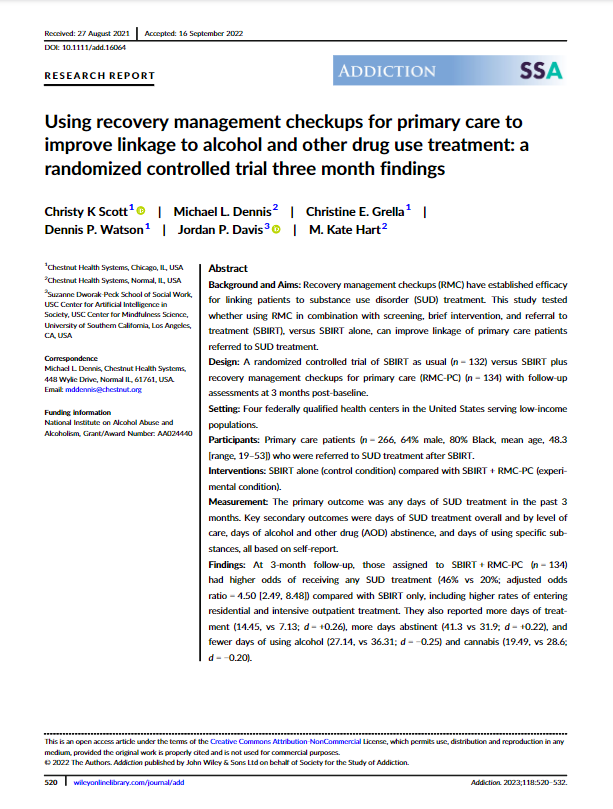Headline
Screening, brief intervention, and referral to treatment combined with recovery management checkups can connect primary care patients to substance use disorder treatment.
Context
Despite the growing number of people with a substance use disorder (SUD), accessing treatment continues to be a significant challenge. Assessment and treatment availability in primary health care settings could greatly support many patients in accessing the care they need. The screening, brief intervention, and referral to treatment (SBIRT) approach has been widely used in primary care settings, however, has mostly been limited to alcohol use and has not been studied in tandem with other linkage models. The Recovery Management Checkup (RMC) is a model that aims to increase linkage to and long-term engagement with SUD treatment. This study examines the three‐month results of a randomized controlled trial of a federally qualified health center (FQHC)/primary care‐based SBIRT‐only model versus SBIRT plus RMC‐PC (the RMC model modified for primary care settings) model.
Findings
The authors found strong evidence to support that SBIRT combined with the RMC‐PC model improves overall linkage to SUD treatment and more days in SUD treatment when compared to the use of SBIRT alone. The authors also reported that the addition of RMC‐PC to the SBIRT model improves secondary outcomes including increased days of abstinence from alcohol and other drugs and high rates of treatment retention. RMC was identified as a robust linkage model for patients with SUD in primary care settings.
Takeaways
Primary care settings offer a critical opportunity to both identify patients with SUD and link them to treatment options. There is strong evidence to support the effectiveness of SBIRT plus RMC‐PC in primary care settings, particularly as related to improved treatment referral and subsequent treatment engagement among patients with SUD.




